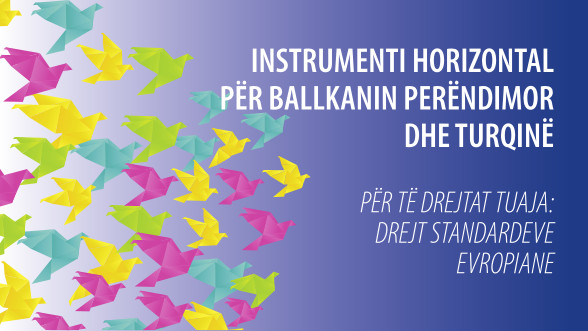Upon requests from the authorities of the Horizontal Facility Beneficiaries, the Expertise Co-ordination Mechanism (ECM) enables the provision of legislative expertise and policy advice in the areas covered by the programme, as well as on constitutional issues falling within the mandate of the European Commission for Democracy through Law, known as the Venice Commission.
In this context, the Venice Commission adopted three opinions requested under the ECM, during its 134th plenary held on 10-11 March 2023.
In the Opinion on the Draft Law on Courts of Bosnia and Herzegovina, the Venice Commission welcomed the readiness of the authorities of Bosnia and Herzegovina to reform the State-level judiciary in order to better comply with European standards. It also noted a number of improvements and clarifications made in the Draft Law in comparison to the previous drafts.
The Venice Commission recommended further harmonisation of other legislation currently in force with the provisions of the Draft Law. Furthermore, it advised to refrain from organising courts strictly along ethnic lines, noting that the composition of the State-level judiciary should reflect the diversity of Bosnia and Herzegovina.
The Amicus curiae Brief on the question of the appellate review in the Courts of Bosnia and Herzegovina assessed whether the structure of the Appellate Division set out in the Law violates the “principle of two instances” and the principle of independence and impartiality of the “tribunal”, as provided for in the European Convention on Human Rights (ECHR). Furthermore, it examined whether the power of the President of the Court to assign the judges to different Divisions and panels of the same court violates the institutional and individual independence of judges guaranteed under the ECHR.
In this regard, the Venice Commission concluded that the current system appears not to be in conflict with the ECHR principles, although it encouraged further development of the rules on the assignment of judges to the Divisions and on the allocation of cases. It also suggested to strengthen the institutional separation between the first and the second instances.
In the Follow-up Opinion to the opinion on the draft amendments to the Law on the Judicial Council and Judges – Montenegro, the Venice Commission welcomed the new amendments and confirmed its previous and overall positive assessment of the draft law, while also reiterating that some of its previous recommendations have not been followed.
Those recommendations sought to provide that work-related rights of judges are regulated by the law, to reduce the applicability of exceptional anti-deadlock mechanisms (such as the election of the acting president of the Supreme Court or of any other court), to envisage an appropriate and tailored evaluation for the judges of the Supreme Court and to stipulate that only the members of the Judicial Council are responsible for initiating disciplinary proceedings.
The Expertise Co-ordination Mechanism is a part of the joint European Union and Council of Europe programme “Horizontal Facility for the Western Balkans and Türkiye”, implemented by the Council of Europe.



